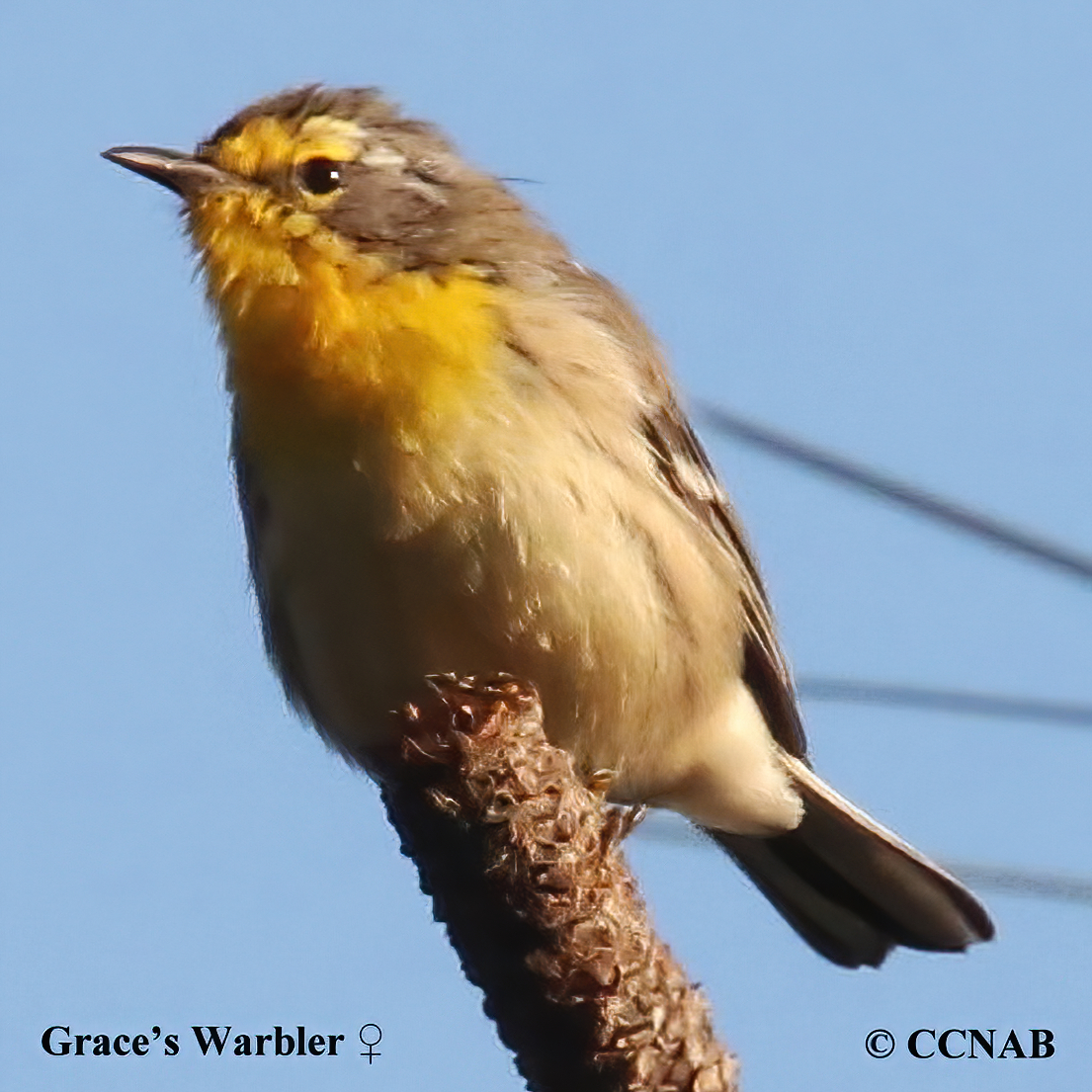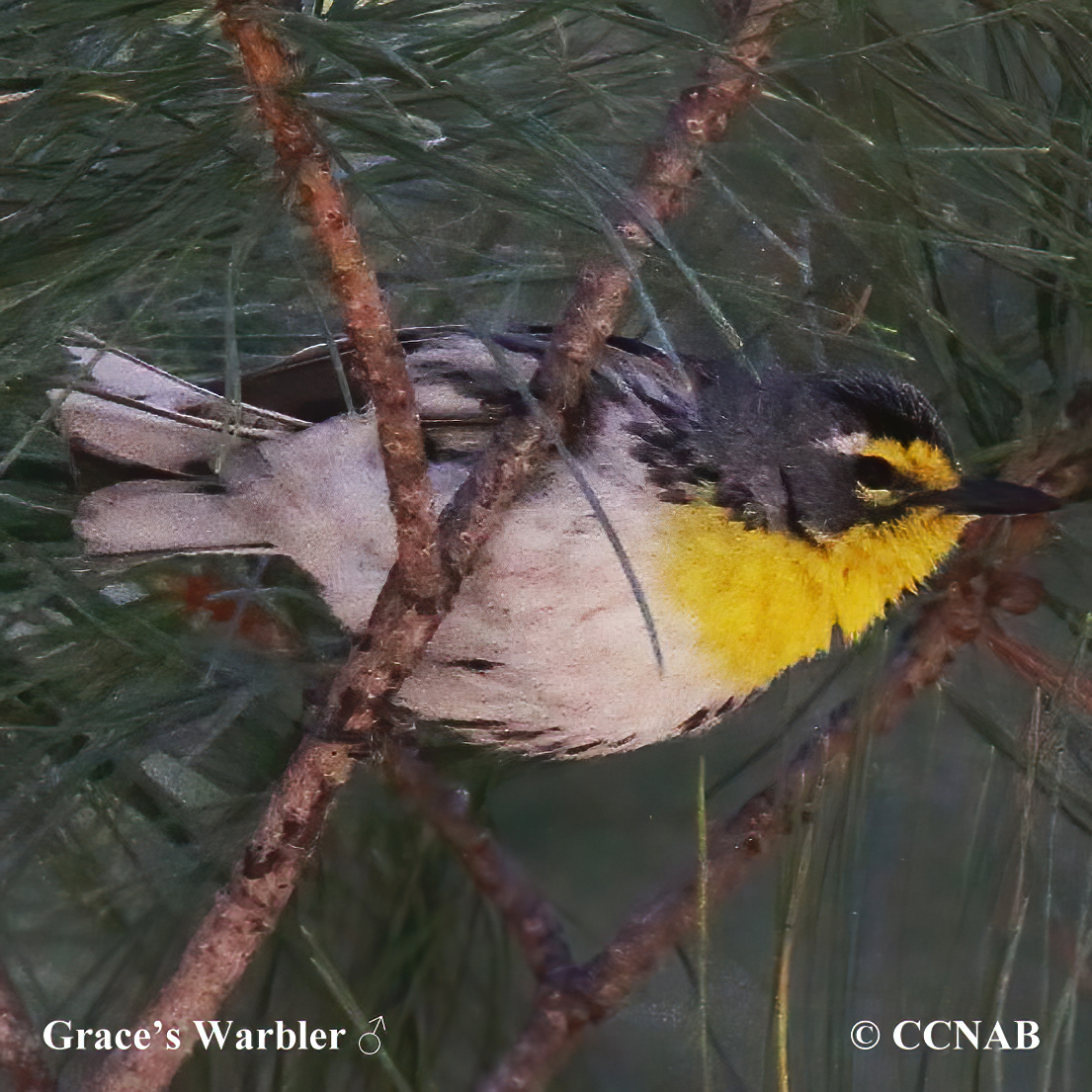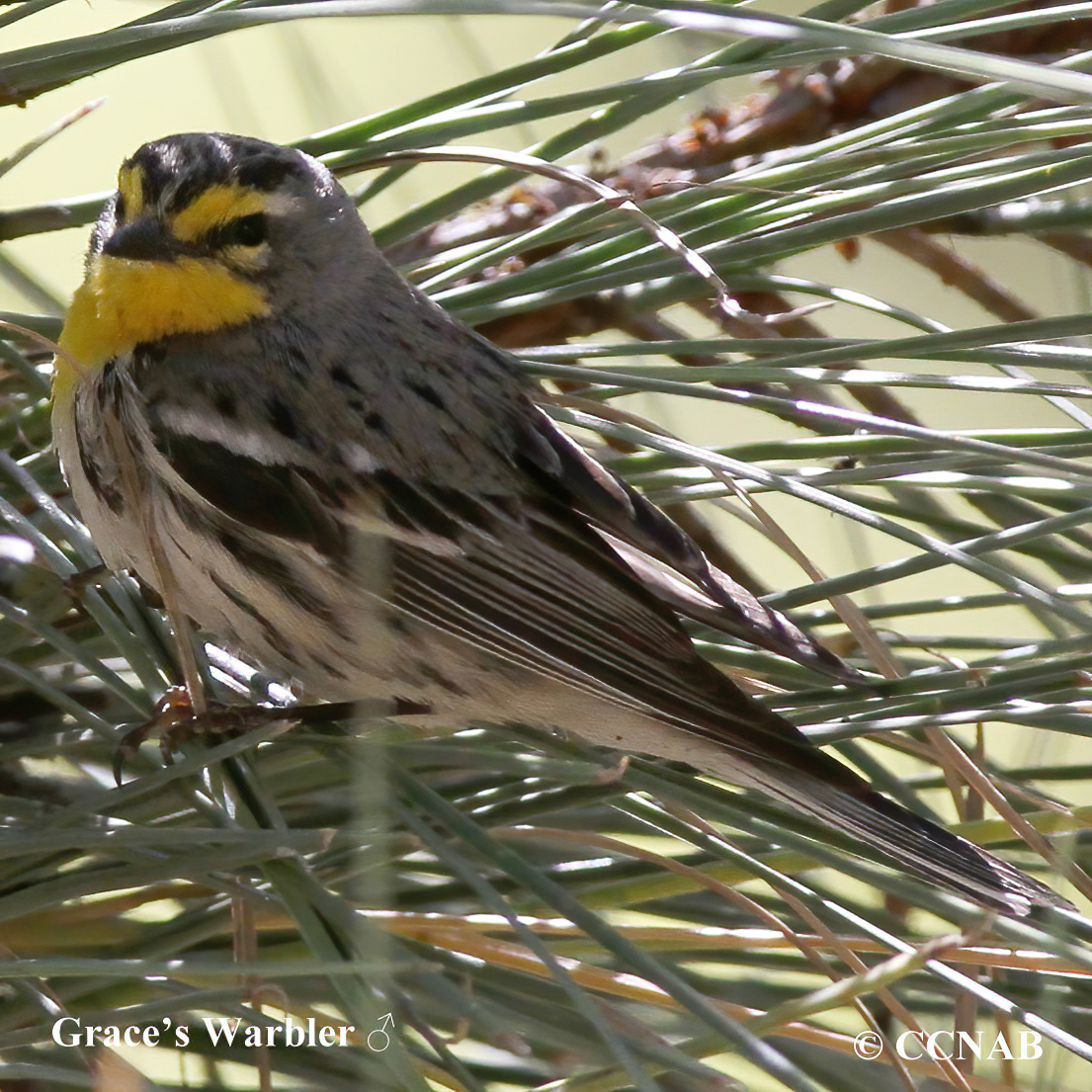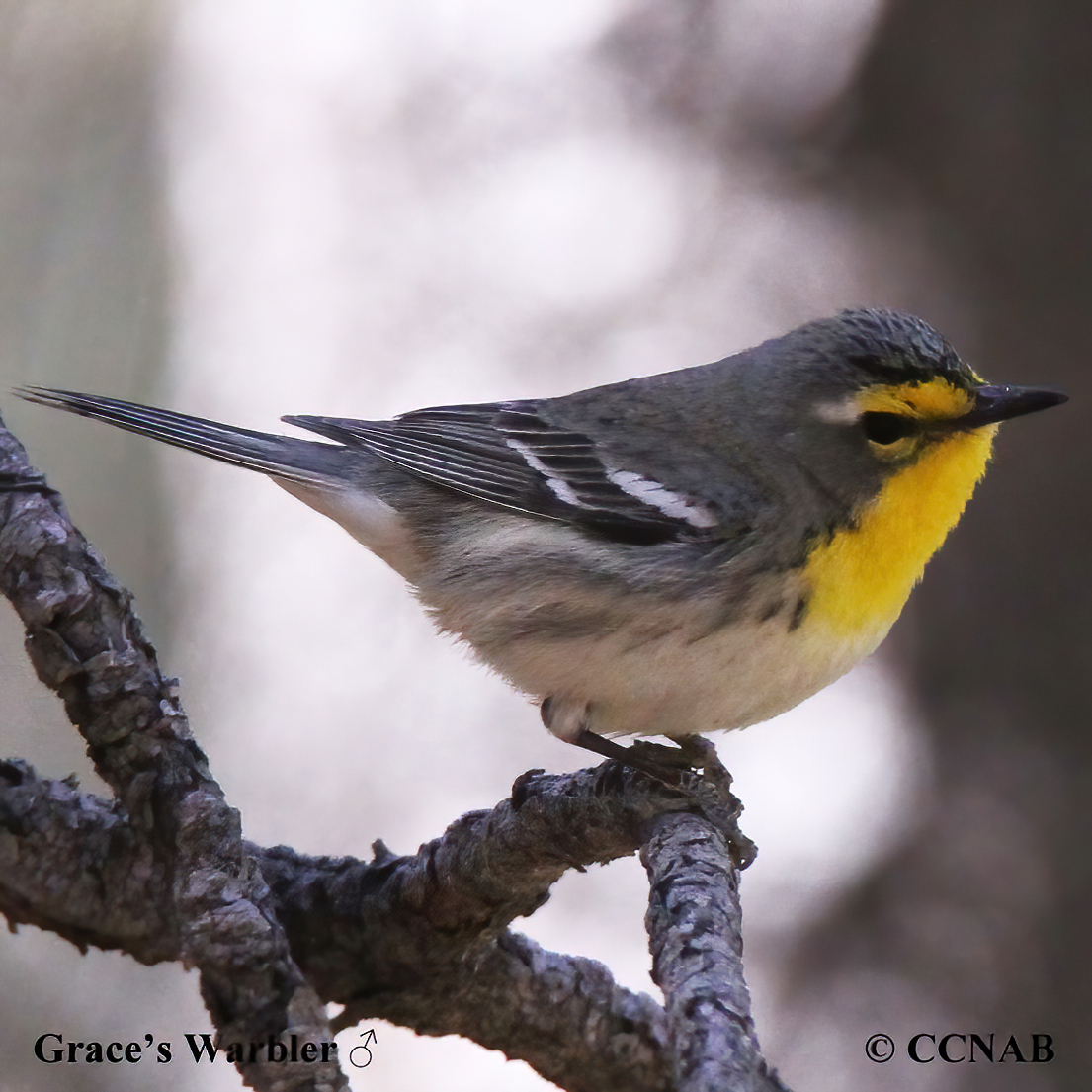North American Bird Search Box
This search box can be used to find bird species using bird's english, french or latin name, or to identify bird by its 4 letter Alpha Code
Field Guide for all the Birds of North America
Grace's Warbler
4 Letter (english names) Alpha Code: GRWA (1)
Paruline de Grace
Setophaga graciae
Information, images and range maps on over 1,000 birds of North America, including sub-species, vagrants, introduced birds and possibilities
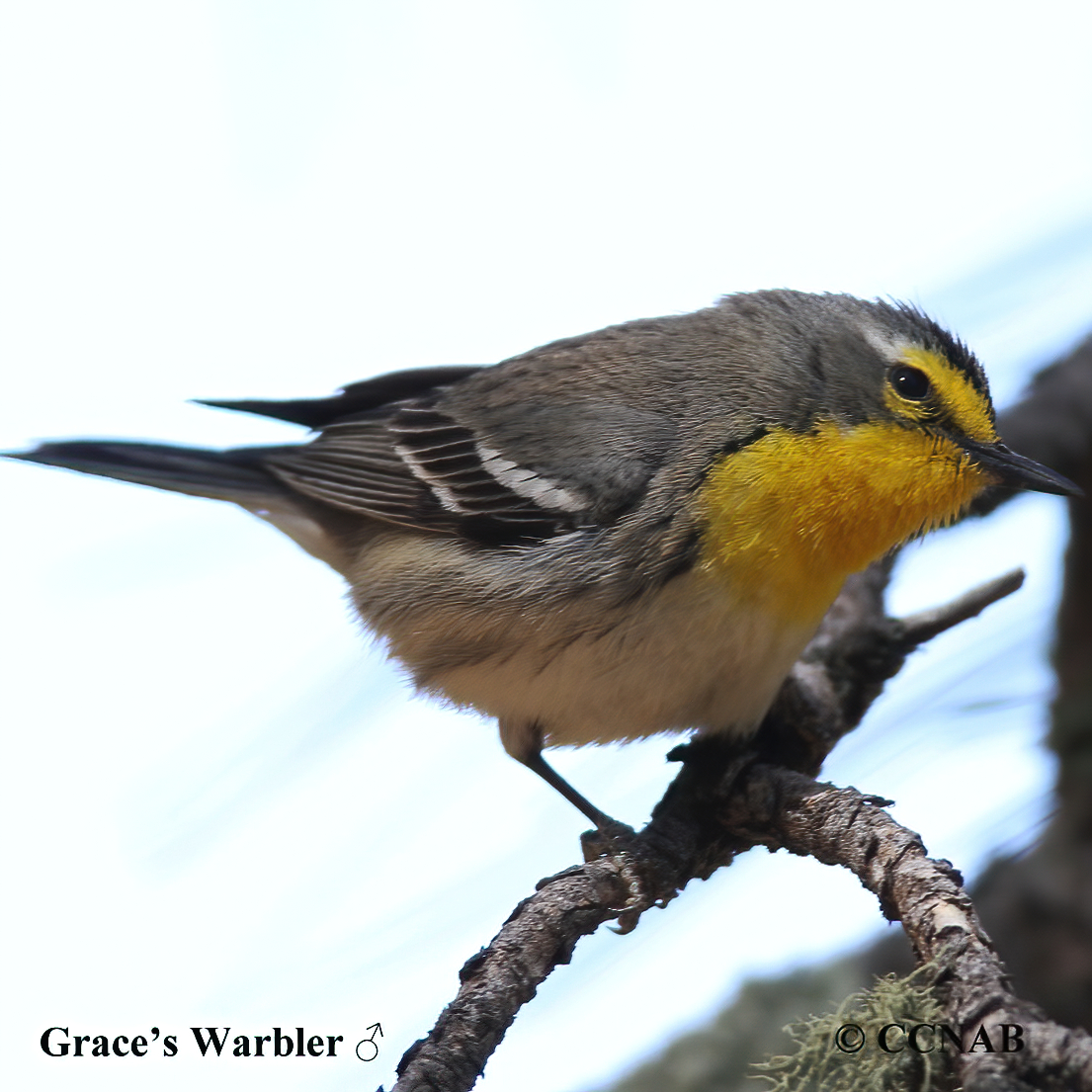
Species: The Grace's Warbler (Setophaga graciae) lives in montane-type forest of mature pines and oaks. It spends most of its time feeding high up in the pines, actively moving about, in search of insects which are its main diet. The population seems to be expanding its breeding range into the northern states. It is not, when compared to other warblers, a long range migrant. It has a similar appearance to the Yellow-throated Warbler, which does not share the same North American regions.
Distinctions: The male has a bright yellow throat and upper breast, yellow supercilium, yellow crest below the eye. Bluish-gray crown, nape, back and tail. Bluish-gray and black wings with two white wingbars. White stomach and undertail coverts, bold black streaks on flanks. The female is similar to the male, as are the juveniles, but duller in appearance.
Voice: Single call note, song sound like "che, che, che..., repeated over.
Nesting: Three to five creamy white coloured eggs, with brown markings. The nest is built high in mature conifers and is composed of strips of bark, rootlets, leaves and lined with fine grasses and hairs.
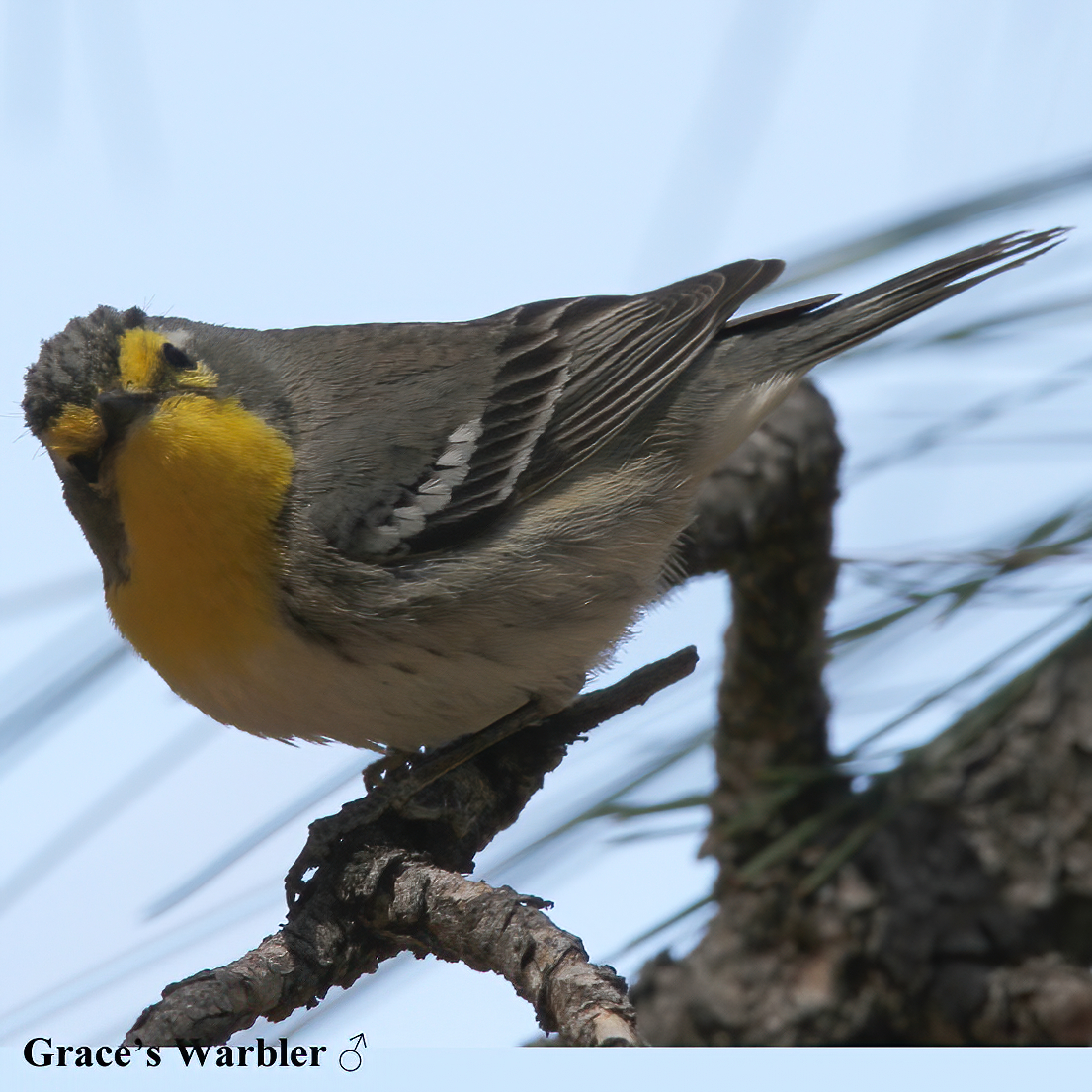
Life, Habitat & Pictures of North American Warblers
| B L | W W | W | Family | Latin Name |
|---|---|---|---|---|
| 5" 12.7cm | 8" 20.3cm | 0.35 oz 9.9g | Parulidae | Setophaga graciae |
North American Bird Calls
- Click here
- Summer
- Year Around
- Winter
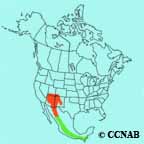
Distribution: Prefers mature pine or a mix of pine/oak forest and during the spring/summer months it is seen in the southern regions of Colorado, touching into western Kansas, through the southwestern regions of New Mexico and two-thirds of Arizona. It migrates into Mexico and Central America during the winter months.
Reference to Other Bird Site:
ABA - American Birding Association This site represents an organization that maintains official records of all birds species that have been proven to have been seen inside the perimeters of the North American Continent and the surrounding bodies of water. Regular revised versions are posted to keep the bird list current at all times. This is the list used by all serious birders over their lifetime. You may be aware of the movie called the "Big Year". It was with this list that all the competing birders used in an attempt to set a new record as to how many bird species that could be seen by an individual birder in one calendar year.
